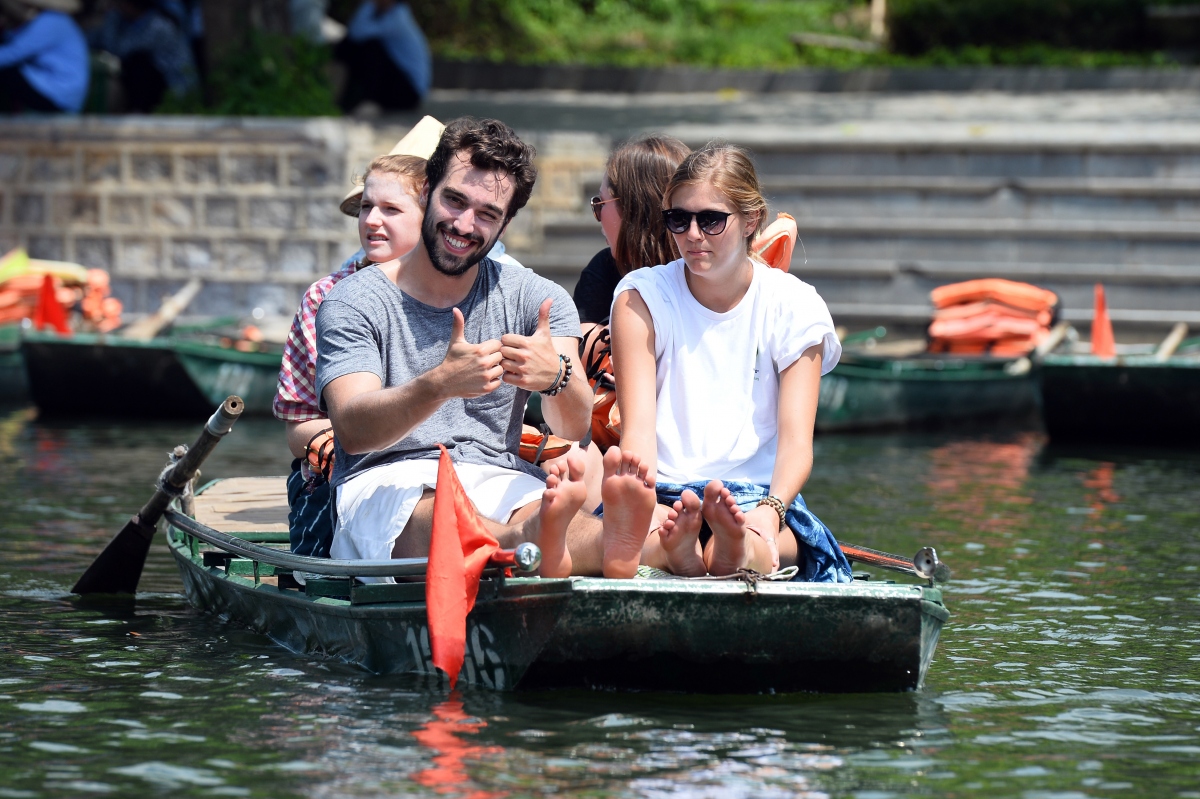Limited tourism promotion leaves Vietnam lagging behind competitors
Setting up representative offices in target markets is considered the "trump card" in attracting travelers. But Vietnam has allocated only modest budgets for tourism promotion and has been slow in opening representative offices.
Sukanya Sirikanjanakul from Tourism Authority of Thailand (TAT) said Thailand has 29 representative offices around the world, including 18 in Asia, eight in Europe and three in North America.
The offices have the function of popularizing Thailand’s images and disseminating information to different groups of international travelers. The representatives return to Thailand every year to put forward detailed promotion plans to attract more tourists in each market.
With support from the overseas offices, in the first five months of 2023, Thailand received 10.4 million foreign travelers, earning 428 billion baht.
In the case of Malaysia, the country has been operating 35 tourism representative offices overseas since 2019. Meanwhile, Singapore has 23 and the Republic of Korea (RoK) 31.
According to AZA Travel CEO Nguyen Tien Dat, Vietnam is not a large market, but other countries, including RoK, Thailand, Malaysia, Singapore, Japan and Russia, all have representative offices in Vietnam and the offices have been operating very effectively in promoting tourism to their countries.
Dat said RoK not only advertises its traditional destinations such as Seoul and Jeju Island, but also remote areas with great tourism potential. The country has good policies to promote sales – honoring travel firms which have large MICE (Meeting, Incentive, Conference, Event) groups, offering free excursion fees at some destinations, and giving souvenirs as presents to travelers. It also organizes writing and photo competitions about the RoK to have texts and images published on official channels and social media.
Nguyen Cong Hoan, CEO of Flamingo Redtours, said tourism representative offices undertake many duties, including advertising products, exploring demand, and connecting businesses with host countries and providing information.
Thanks to the presence of the offices, Thailand, Singapore and RoK were able to recover their tourism industry early and begin receiving tourists after the pandemic was controlled.
“I receive updated information from agencies about the COVID-19 situation, and about the preparation to receive travelers back. Soon after Vietnam decided to reopen the tourism market, the countries immediately had tourism products to offer,” Hoan said.
Meanwhile, Vietnam has just opened tourism representative offices in Japan (June 2014), the RoK (June 2019) and the UK (February 2020). The operation remains limited because COVID-19 broke out soon after the offices opened.
Most recently, in Resolution No 82 dated May 18, 2023 on major tasks and solutions to accelerate Vietnam’s tourism in a sustainable way, Prime Minister Pham Minh Chinh asked ministries and branches to build a plan on the establishment of tourism promotion offices in other countries, especially in key markets.
Analysts said the biggest problem for Vietnam is the limited budget for tourism promotion. With US$2 million, the amount of money Vietnam plans to spend on tourism promotion is equal to 2.9% of Thailand’s, 2.5% of Singapore’s and 1.9% of Malaysia’s. Vietnam has few opportunities to attend big events or international trade fairs.
Hoan said Vietnam has recognized the problems in entry/exit policy, in market development after COVID-19, and in tourism products, and has developed solutions. It now needs to inform international customers about the changes via communications and media.
Vietnam has set the target of attracting 100 million domestic travelers, 8 million foreign travelers and VND650 trillion in revenue in 2023, but has not thought about how much money it would budget for tourism promotion. It is still unclear what the Vietnam National Tourism Administration (VNAT), local authorities, destinations, travel firms and air carriers have to do to obtain the targets.
Vietnam still has not drawn up an overall scenario on promotion, so it is highly possible that "the left hand doesn't know what the right hand is doing". If so, resources will be scattered or overlapped, while destinations may compete with each other.
Regarding expenses on opening representative offices overseas, Hoan said the money may come from the state budget, diplomatic agencies, trade promotion funds, or sources in society.

